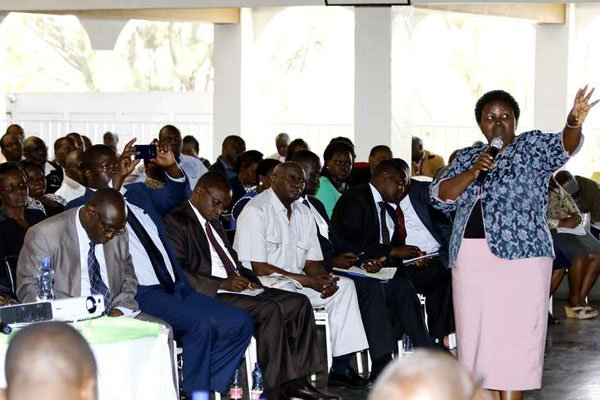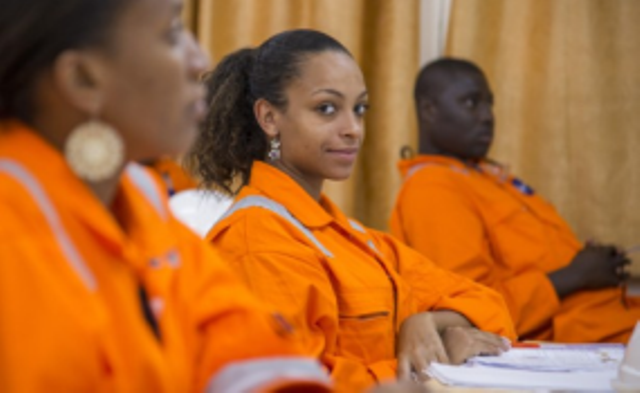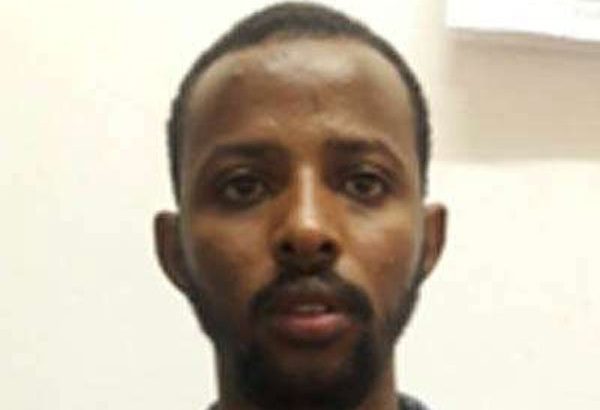Kenia / 07 de septiembre 2016 / Por: VINCENT ACHUKA / Fuente: http://www.nation.co.ke/
A surge in the number of students being arrested on suspicion of joining the Islamic State (Isis) has triggered alarm on the group’s recruitment efforts in the country.
The Commission of University Education says at least 44 university students have abandoned their studies to join terror groups including Isis in Libya and Al-Shabaab in Somalia.
Concern is especially growing over the number of students studying medicine who have been detained on suspicion of belonging to terror groups.
On Wednesday, the US government froze the assets of Somali resident Abduqadir Mumin, who it identified as the leader of the Islamic State in East Africa and warned its citizens against conducting any business with him.
“Mumin, a former Al-Shabaab recruiter and spokesman, pledged allegiance to Isis, along with around 20 of his followers, in October 2015. And has set up a base in Puntland, Somalia,” said the US State Department.
“Since then, Mumin has expanded his cell of Isis supporters by kidnapping young boys aged 10 to 15, indoctrinating them, and forcing them to take up militant activity,” it added.
Unlike Shabaab, which recruits directly, Isis increases its membership through the creation of franchises or raiding other terror groups for members by convincing their terror cells to join them.
It is believed Mumin’s cell – which calls itself “Jahba East Africa” – is behind the massive recruitment drive for the Islamic State in East Africa.
Al-Shabaab, which is believed to have been weakened significantly due to wrangles among its leadership and a sustained campaign against it by the African Union mission (Amisom), pledges its allegiance to Al-Qaeda, a fierce rival to the Islamic State.
Apart from the El-Adde base attack in which dozens of Kenya Defence Forces soldiers were killed after Shabaab militants raided their camp in Somalia, the militant group, which has killed hundreds of Kenyans in recent years, has not staged a major attack in Kenya this year.
The number of terror attacks on Kenyan soil dropped to 46 last year, 49 per cent lower than the figure for 2014 and the lowest since 201, according to statistics collected by the Armed Conflict Location and Event Data Project, which is run by the University of Sussex in the UK.
STUDENTS APPREHENDED
The university, which compiles data drawn from media reports on terrorist attacks around the world, says Kenya has had 13 militant attacks carried out within its territory so far since January, leading to 34 causalities.
Last year saw 94 attacks while 2013 and 2012 had 48 and 52 attacks respectively.
Security experts say while Isis has no reason to attack Kenya, the reported recruitment drive is a cause for worry.
“We have not reached a level where he have an active Isis threat in Kenya because what we have is people willing to join the terror group or sympathetic to them,” Major (Rtd) Bashir Abdullahi, a security analyst says.
“But if it is about having people who subscribe to their cause within Kenya that is a cause for worry because we do have them,” he says.
But more worrying is the fact that those being arrested on suspicion of being members of the terror group are in the medical field.
On Monday, two interns at the Malindi Hospital, Mohamed Shukri and Abdulrazak Abdinuur, were arrested by officers from the Anti-Terror Police Unit (ATPU) on suspicion of having links to the group.
Both are studying medicine at Saratov State Medical University in Russia courtesy of a scholarship from the Russian government.
Last year, four other medical interns at the same hospital were arrested for allegedly planning to join Isis.
The four Maryam Said, Khadija Abdulkadir, Ummul Khayr (all Kenyans) and Sadir Abdalla from Tanzania were presented to court and their cases are ongoing.
In February, ATPU arrested Hassanaen Ahmed, a University of Nairobi biochemistry student as he was leaving the country to travel to Libya reportedly to join Isis.
In May, Gloria Kavaya, a microbiology student at the Kenyatta University was arrested after she disappeared from school, changed her name and embarked on plans to travel to Syria, according to the prosecution.
During the same month, police said they had foiled a large scale biological attack using anthrax on a scale similar to the Westgate attack.
Mohamed Abdi, a medical intern at the Wote Hospital in Makueni and a student at the Kampala International University was among three suspects arrested.
His wife Nuseiba Mohammed – whom police identified as an accomplice and student at Kampala International University – was arrested a few days later by Ugandan Police as she tried to flee the country together with another Kenyan female student Fatuma Hanshi, according to the police.
The two were handed over to the Kenyan government for prosecution.
Their alleged accomplices in the foiled anthrax attack Ahmed Hish and Farah Dagane, both medical interns at Kitale hospital, have a Sh2 million bounty on them.
“The same network has been facilitating Kenyan youth to secretly leave the country to join terror groups in Libya and Syria,” said police Inspector General Joseph Boinnet.
BRIGHT MINDS
So, what is it that is making practitioners in the medical field get attracted to terror groups?
The Kenya Medical Practitioners and Dentists Board (KMPDB), which regulates the practice of medicine in the country, has refused to be drawn into the debate saying it is not part of their mandate.
“This is something we don’t want to get involved in because it is not a medical malpractice, it’s a security issue,” Daniel Yumbya KMPDB chief executive says.
Medicine is regarded as a prestigious career attracting the brightest students in Kenya Certificate of Secondary Education (KCSE) exams.
Psychologist Philomena Ndambuki from the Kenyatta University says like all terror recruits, those joining Isis are driven by a desire to belong to something, an idea Isis uses to draw disillusioned youth around the world into its ranks through social media.
“Doctors are driven by altruism and a desire to help others, which terrorist recruiters can exploit by promising potential recruits they will be serving a bigger cause,” says Dr Ndambuki.
A widely circulated tweet by the Islamic State’s British recruiter Omar Hussain says: “The wage here may not be as much as you get in the West, but do we live for this life or do we live for the hereafter? Is money more important than the life of your Muslim brother?”
It is such messages that Dr Ndambuki believes turn bright minds into terrorists through a process she calls warped idealism.
But it is not just Isis. The leader of Al-Qaeda, Ayman al-Zawahiri, who took over from Osama Bin Laden (who was an engineer) is an eye surgeon from Egypt.
One of the founding leaders of the armed Palestinian liberation group, Hamas, Abdel Aziz Rantisi was a paediatrician.
After his death in 2004 he was replaced by Mahnmoud al-Zahar, a surgeon, while Abu Bakr al-Baghdadi, the leader of the Isis, has a PhD in Islamic studies.
And since June last year, Isis has been running a campaign calling for foreign professionals like health workers and engineers through blogs, social media, magazines and online videos to join its ranks as locals continue to flee areas where it controls.
So huge has been the influx of professionals in joining Isis from other countries that the UK had to send a delegation including an Imam early this year to Khartoum’s University of Medical Sciences and Technology after 17 British doctors at the institution travelled to Syria.
Fuente noticia: http://www.nation.co.ke/news/University-students-hot-targets-for-terror-groups/1056-3368584-kmbyjaz/index.html













 Users Today : 7
Users Today : 7 Total Users : 35460855
Total Users : 35460855 Views Today : 10
Views Today : 10 Total views : 3420125
Total views : 3420125